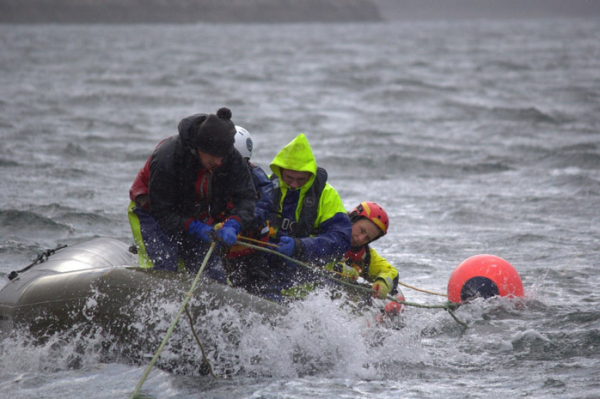Entanglement training in Scotland
The latest entanglement response workshop has taken place in the Highlands of Scotland.
Available data suggest that the number of entanglements and range of species impacted are increasing in Scottish waters. The workshop was requested by the creel fishing community who are working to minimise the risk that whales and dolphins will become snared in their fishing gear.
Organised by the Scottish Entanglement Alliance (SEA) and funded by the University Innovation Fund through Scotland’s Rural College, 20 creel fishermen and women travelled to Ullapool to work alongside project partners with the aim of encouraging better reporting of entanglements, widen Scotland’s existing entanglement response network, and share insights to better understand, mitigate and respond to incidents.
The two-day workshop began in the classroom, covering a wide agenda including identification of the species affected locally, agencies involved in any response, boat safety and legal considerations. On the second day, participants worked on the water, practising safe response techniques and using specially designed tools.
The workshop was conducted in partnership with the Scottish Disentanglement Team from British Divers Marine Life Rescue (BDMLR), the Scottish Marine Animal Stranding Scheme (SMASS), the Scottish Creel Fishermen’s Federation (SCFF), Whale and Dolphin Conservation (WDC) and Scottish Natural Heritage (SNH).
IWC Entanglement Response Workshops began in 2013 with the aim of building global capacity to respond safely and effectively to entangled cetaceans. Since then, workshops have been delivered to over 1200 participants from nearly 40 countries, and the entanglement response initiative is also working to tackle the difficult long-term issue of preventing entanglement occurring in the first place.
Click here to read more about entanglement response.

